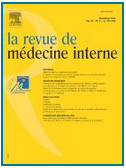 Not only is functional rehabilitation during inflammatory myopathies beneficial in terms of inflammation, but it also appears to result in functional improvement.
Not only is functional rehabilitation during inflammatory myopathies beneficial in terms of inflammation, but it also appears to result in functional improvement.
Rehabilitation has long been discouraged in inflammatory myopathies for fear of aggravating muscle inflammation. In an article published in November 2016, members of the Department of Internal Medicine and Clinical Immunology at the Pitié-Salpêtrière Hospital (Paris) provided an update on this issue. The article was based on 30 medico-scientific studies published on this topic since 1993 (five randomised controlled trials, four non-randomised controlled trials, fifteen cohort studies and seven case studies).
These studies concluded that exercise is not harmful during inflammatory myopathies (including during the active phase), particularly due to the absence of increased creatine kinase levels. Some studies showed an improvement in endurance, muscle strength and/or fatigability.
According to the studies, muscular effort was aerobic (endurance), anaerobic (resistance) or mixed. A randomised trial of creatine supplementation combined with a moderate double-blind, placebo-controlled study showed significant improvement in muscle function in both resistance and endurance.
The authors recommend the systematic association of rehabilitation with the medicinal treatments proposed for people with inflammatory myopathy, as well as during the active phase. If rehabilitation can reduce the disease activity, improve muscle performance and contribute to a better quality of life, studies should be carried out to further define the most appropriate rehabilitation protocols (duration, intensity, frequency …) or the benefit of creatine supplementation.
